This is part two of Andrew Marshall’s ongoing series examining the intersection between backpacking and ancient ways of thinking. Read part one here.
My long-time hiking partner and I have a Stoic-themed running joke that we break out on every backpacking trip. And if you think that’s the nerdiest thing you’ll read on Backpacking Light this week, you haven’t been around this website very long.
The joke normally happens when something particularly miserable is going on – let’s say we’re entering hour ten of a rainstorm, and the temperature drops down into the low forties.
The joke goes like this.
Q: “How would Marcus Aurelius handle this situation?”
A: “He’d probably say, ‘get me out of this rainstorm, you assholes. I’m the most powerful man in the known world!’”
Like all the best jokes, this one requires a detailed explanation, a passing familiarity with western philosophy, and an interest in the history of post-republic Rome.
A brief primer on Richard Harris, I mean, Marcus Aurelius
See, Marcus Aurelius had a lot to say about bearing up under hardship and living a simple, austere existence that revolves around controlling one’s reactions to external circumstances. He is responsible for Meditations – a tome that, along with works by playwright Seneca the Younger and slave-turned-philosopher Epictetus, form the backbone of the Roman philosophy of Stoicism.
What’s funny about that – at least to me, especially if I’m being rained on – is that at the same time that Marcus Aurelius was writing lines like “our life is what our thoughts make it,” he was the Emperor of Rome during one of its high water marks. In his lifetime, he was arguably the most powerful person in all of Europe, Central Asia, and northern Africa. If there was any man alive at the time who could make his world reflect his thoughts, it was Marcus Aurelius.
So it’s inherently humorous to me to read a Marcus tidbit like, “There is never any need to get worked up or to trouble your soul about things you can’t control,” because the list of things the Emperor of Rome couldn’t control at that time was probably vanishingly small, at least compared to most other human beings alive at the time.
To be fair to Marcus, the writings that makes up Meditations were his personal journals and were probably designed to help him remember that even though he was the Emperor of Rome, he shouldn’t necessarily live or act like it.
And by all accounts, it worked. Stoicism didn’t help Marcus avoid the trap of nepotism or raise a decent son – Commodus was famously a nutbar, and yes he really did fight in the Colosseum for fun. But the philosophy did seem to keep Marcus from winding up as a murderous, spoiled lunatic, and that fact alone puts him in the top ten of all absolute monarchs, if not the top three. Quite an accomplishment, really.
All of which is to say – in a roundabout way I can get away with because I’m the editor around here – Stoicism can be a helpful mindset for ultralight backpackers.
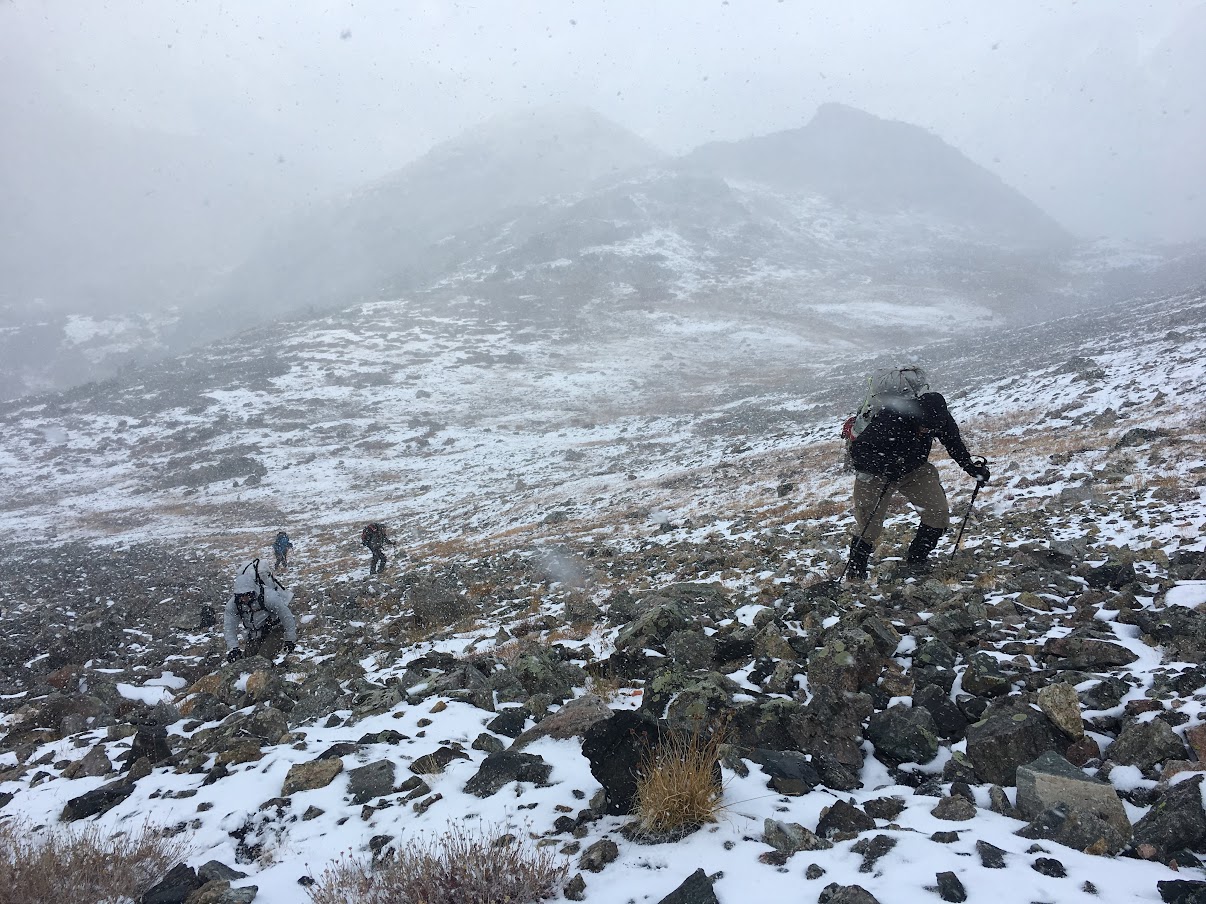
Some things that look great as a refrigerator magnet
Consider this from Epictetus: “The chief task in life is simply this: to identify and separate matters so that I can say clearly to myself which are externals not under my control, and which have to do with the choices I actually control. Where then do I look for good and evil? Not to uncontrollable externals, but within myself to the choices that are my own…”
Okay, so this is pretty basic stuff, right? I mean, really, most philosophy and religion are made up of the same seven good ideas, and this is one of them. I’m sure you’ve heard a variation of it. Stoicism is filled with things like this:
“We are often more frightened than hurt; we suffer more from imagination than from reality.” — Seneca
“You become what you give your attention to… if you yourself don’t choose what thoughts and images you expose yourself to, someone else will.” —Epictetus
“Today, I escaped anxiety. Or no, I discarded it, because it was within me, in my own perceptions, not outside.” — Marcus Aurelius
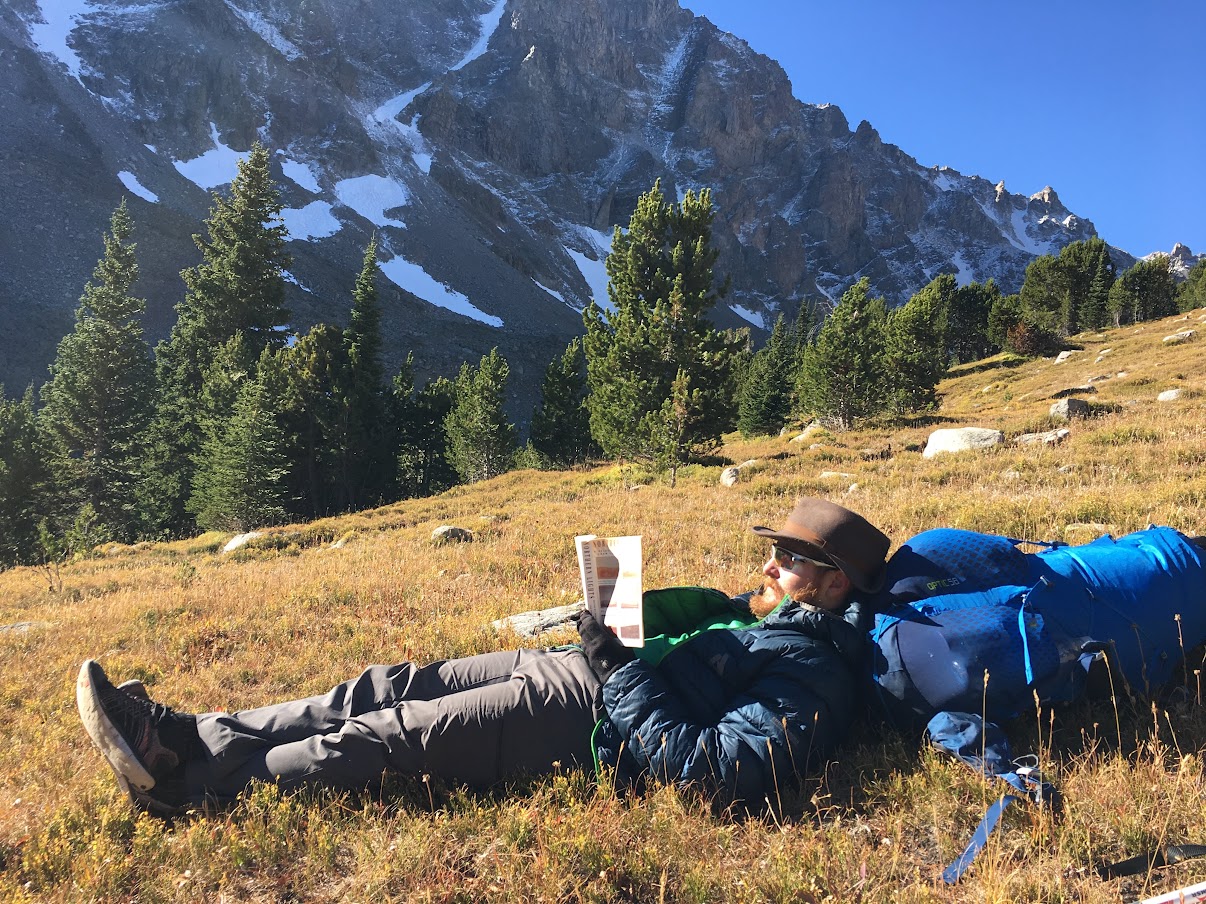
I have a lot of love for pithy little sayings like this. It’s one of the things that makes Stoicism such a lasting and accessible mindset and one of the reasons people like Ryan Holiday can make a whole career out of talking about it. It sounds good. It looks good as a tattoo.
But just like the Bible verses from my youth, I have trouble transforming lines like this into a usable mindset. I am, as I’ve written several times in this space, simply too chemically unbalanced to “discard my anxiety” in ultralight backpacking or life in general.
But Stoicism also comes with a few thought exercises – sort of summations or generalizations of all the ideas in the texts distilled into practices – and these I do find handy, especially in the context of outdoor, human-powered adventure. Here are a few I find useful for backpacking. Bonus points – some of them are in Latin, which makes them sound extra cool.
Memento Mori
I’m fascinated by risk assessment, particularly as I now have a 37-year-old, fully functioning pre-frontal cortex and am (I think?) well past my days of doing stupid things to impress pretty girls.
I’m struck by all the times I see people – people who should know better – doing dumb things in the outdoors. Don’t you know people who push over high passes with thunderstorms looming? People who’d rather play the odds against water-born pathogens than spend a few ounces of pack weight and a few minutes of trail time carrying and using a water treatment system? People who walk too close to rattlesnakes, set up shelters in flood zones, or hop casually across precarious Jenga nightmares of talus and scree?
I sure do. Often it’s people who don’t know any better – raw beginners.
And just as often, it’s people who should know better because they have a moderate-to-decent amount of skill and experience. But the problem with people with some skills and experience is that they often overrate those skills and experience – a cognitive bias called the Dunning-Kruger effect.
A related phenomenon is the thinking that “my reckless behavior has so far not caused any harm; therefore, it will continue not causing any harm.” This cognitive bias is called the Normalcy Bias. If you are pretty sure neither of these biases applies to you, they probably apply especially to you.
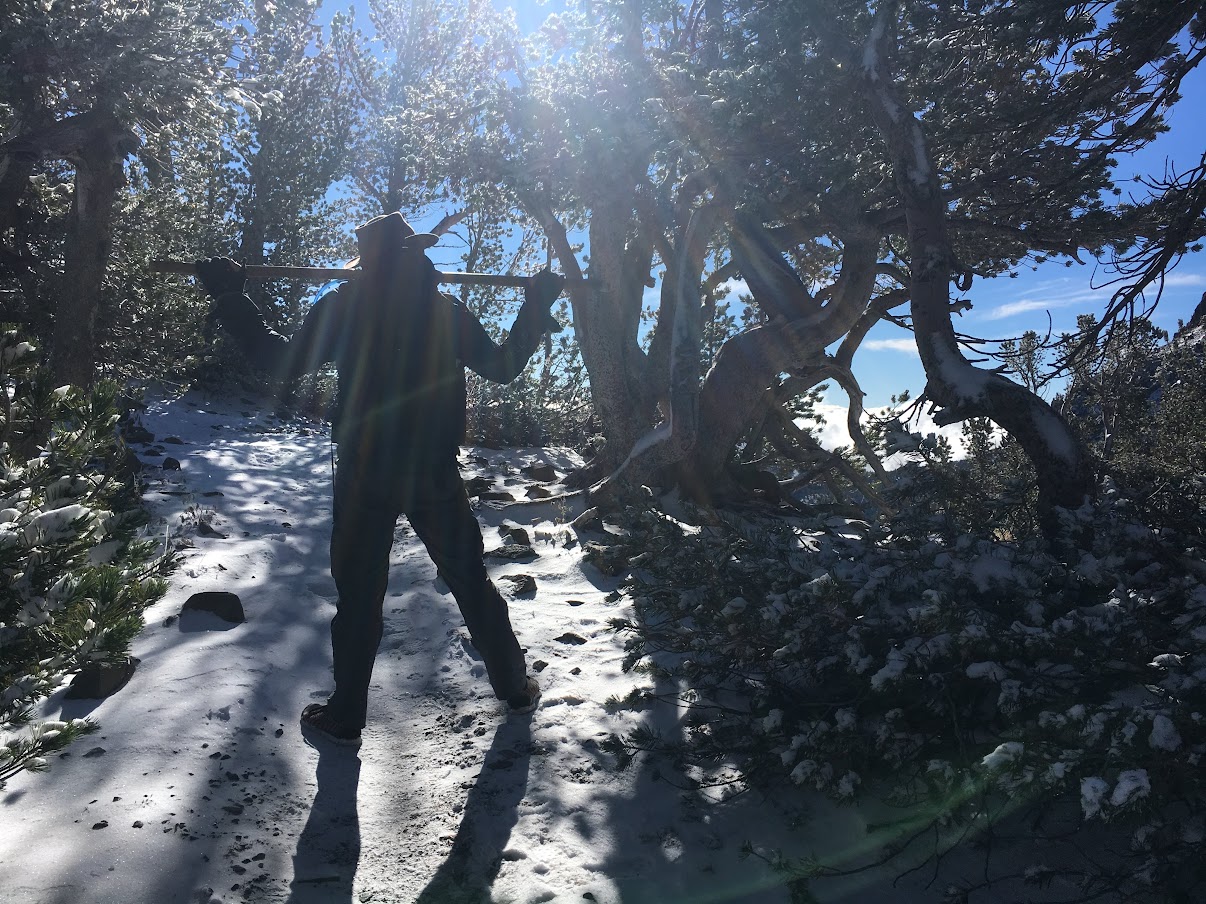
The city of Rome used to throw triumphs for victorious generals. Imagine a Super Bowl parade where the losing team has to march in chains ahead of the victorious team’s coach. That’s the general vibe.
Triumphs were huge, career-making deals. Once in a lifetime events (well, until Pompey the Great, but that’s a different story). Anyway, triumphs could inflate the ego a bit. That’s why, as the victorious general proceeded through Rome in his bedazzled chariot, a slave would whisper in his ear, over and over again, “Memento mori.”
Remember, you are mortal.
Find a hiking partner who will do the same for you. If you are the type of person who looks at a gathering thunderhead and says, “yeah, we can make it over the pass if we hurry,” you should be backpacking with someone who takes the opposite approach.
Your loved ones will thank you for it.
Premeditatio Malorum
There’s a good Stoic exercise for decision-making. It involves thinking through a scenario and imagining the worst – the very absolute worst – thing that is likely to happen and then imagining what you would do in response to that thing. Often, rather than increase my anxiety about a decision, this process decreases it because, in my head, I have faced the worst-case scenario and determined that I will most likely still be 1) alive and 2) mostly unscathed at the end of it.
Premeditatio Malorum – the pre-meditation of evils – is powerful in day-to-day life, where the worst-case scenarios are somewhere between “I’ll lose my job,” and “my cat will be irritated with me.” By realizing that the worst thing that will happen is usually not all that bad, one can make decisions one might otherwise be too hesitant to make. It’s a way of overcoming uncertainty.
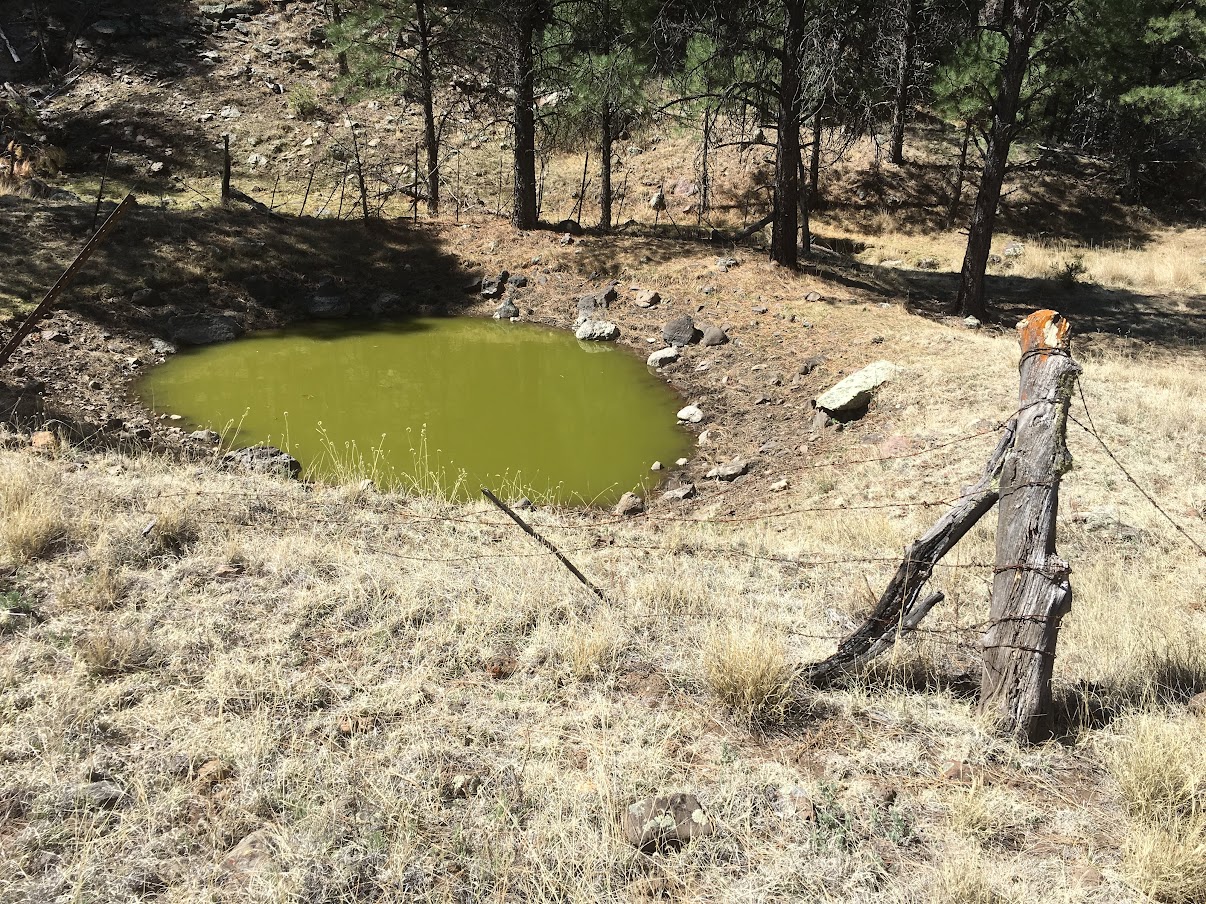
In human-powered adventure, the stakes are often higher, so Premeditatio Malorum must be practiced with care and often serves to discourage, rather than encourage, certain decisions.
In fact, Memento Mori and Premeditatio Malorum should be held in the mind side by side. Remember you are mortal – and do so by realizing that in many backpacking scenarios, the absolute worst decisions can lead to injury or death. Make decisions as if this is the case.
I thought about this concept a lot during the last few years as various phases of the pandemic affected the backpacking-related decisions I made. When the non-profits that manage the big three National Scenic Trails (Appalachian Trail, Continental Divide Trail, and Pacific Crest Trail) recommended postponing or canceling thru-hikes in the spring of 2020, many prospective hikers kicked up a fuss. “Why,” the question went, “would I worry about Covid-19 when I’m going to be hiking in the woods the whole time?”
This mindset reflects a lack of Premeditatio Malorum, which forces the thinker to work through a full set of scenarios to arrive at an outcome. Applying Premeditatio Malorum reveals a worst-case scenario in which a Covid-19 infected hiker might spread the disease through the small trail towns, hostels, and resupply points that form the spine of life on a long-distance trail. Many of these towns have disproportionally elderly populations, and many are hours away from the nearest hospital with a ventilator.
After spending some time imagining how I might react to being the cause of such a disastrous ripple effect, I had no issues changing my plans in 2020.
Amor Fati
We’ve written lately at Backpacking Light about the pleasures of shorter trips over month-long or multi-month thru-hikes. I appreciate this mindset, but my background is in thru-hiking, and I have a bit of a different perspective.
I find shorter backpacking trips difficult to fully immerse myself in. It takes me a while to unwind, to get used to sleeping on the ground again, to get into the rhythm of things. With a shorter trip, I’m just getting there before it’s time to head home.
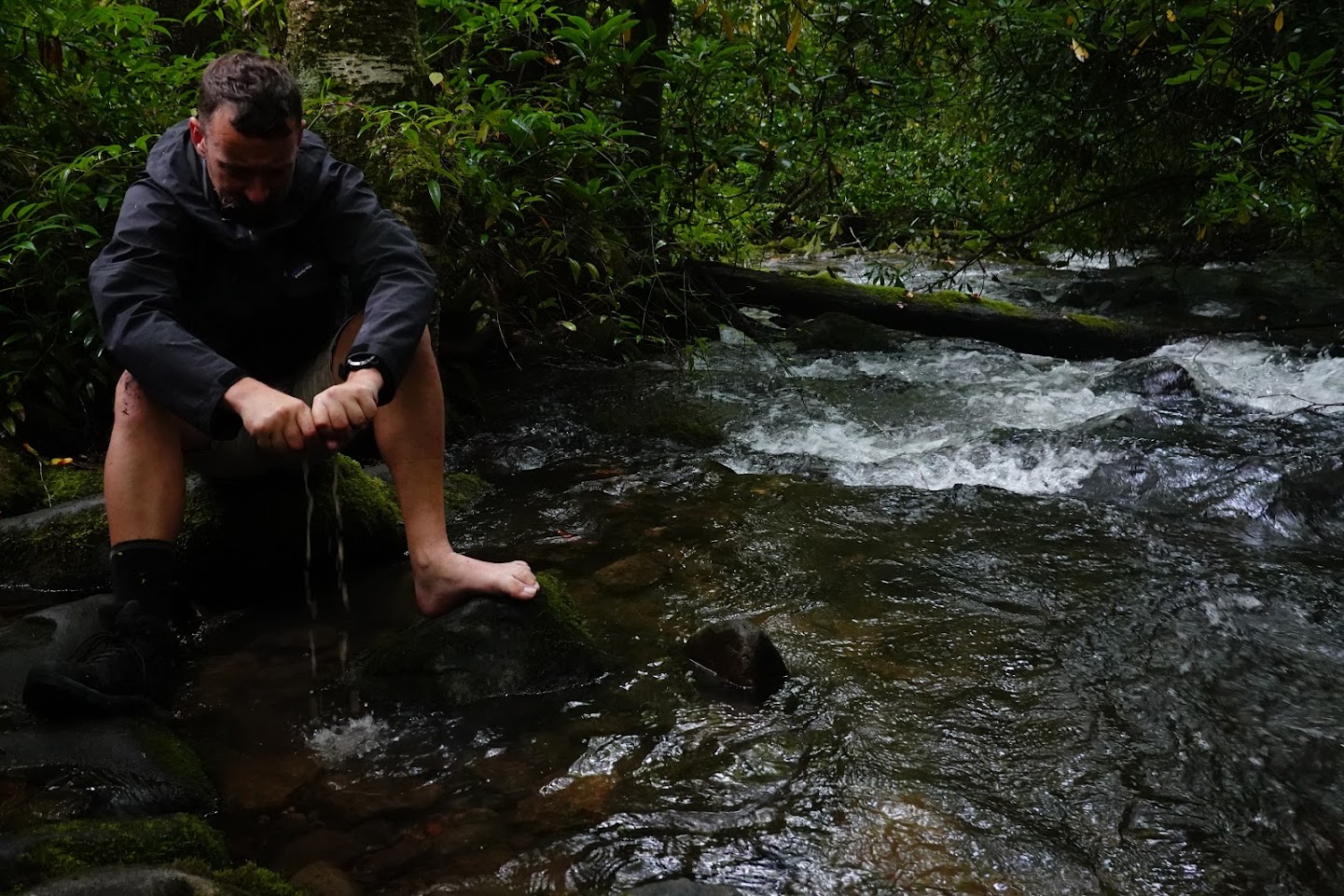
Longer trips allow me to embrace Amor Fati – love of fate. On short trips, it’s easy to suffer a bit and then question why I’m out there, daydreaming of pizza and a warm bed when I could be eating pizza and sleeping in a warm bed. But on long trips, I can flip my brain into viewing each negative circumstance – too cold, too hot, too tired, blisters, insect bites, poor sleep – into something that is, if not intrinsically good, at least necessary.
Perhaps a backpacker with a stronger will than I can make this flip more quickly or smoothly than I can. But for me, I appreciate that long trips force me to embrace – to love – that wet is wet, cold is cold, hot is hot, and steep is steep.
Amor Fati is an idea that meshes very well with mindfulness, which I wrote about in the first part of this series.
Practice Misfortune
Practicing misfortune is a concept that comes straight from Seneca and is most useful when it comes to training for backpacking (or anything else really). What it boils down to is this – train outside on crappy days.
Even more so, train harder, for longer, at a greater intensity, on crappy days. Get rained on, or posthole, or get parched in the heat. Sleep on the floor of your bedroom every now and then. Turn your AC off. Don’t eat for a day. Take cold showers. Leave the umbrella at home on a rainy day.
The idea is that when you practice misfortune, normal life difficulties – or difficult circumstances while backpacking – seem easier by comparison.

This is a somewhat obvious concept and will likely cause a few eye rolls (duh, right?) but I’d bet that it is difficult for many to put into practice. I know it is for me. I’m pretty good at finding a reason not to go on a run in 40-degree, freezing rain conditions. I can always find an excuse not sleeping on the ground. I do enjoy my comforts.
Practicing Misfortune can be extended beyond training for trips to encompass the trips themselves. The hardest trip I ever took was 170 miles in six days, and 100 miles of that was post-holing, stumbling over suncups, and route-finding over blinding, icy slush. I won’t call this trip fun, but I undertook it because I had a guiding trip coming up later in the year, and I wanted my brain on that trip to be thinking, “hey, this is easy,” even when it wasn’t.
Another way of thinking about all this? Everything is training for something.
Embrace what works, discard the rest
For me, it takes a conscious, sustained effort to Practice Misfortune. In fact, it takes real effort to undertake any of these exercises – which is pretty much the whole point, actually.
Stoicism is about thinking – living – intentionally. Not being carried along and pushed from one thought and emotion to the next and reacting thoughtlessly to each in turn, but instead choosing a response to each circumstance.
That idea as a whole can be applied to ultralight backpacking pretty broadly, as I hope my examples have demonstrated. But there’s no need to embrace the entire philosophy if it doesn’t work for you. I have no interest in pointing you towards either a trendy lifestyle or a set of trendy lifestyle coaches (I am terminally skeptical of both).
Feel free to pick and choose concepts and techniques that seem effective and cheerfully ignore the rest. This, after all, is the beauty of ultralight backpacking as a philosophy. The best aspects of it are the ones that work for you.
Related Content
- read more by Andrew Marshall
- don’t miss the first part of this series on the intersection of philosophy and backpacking – Mindfulness Meditation for Backpacking
- browse more Tips, Tricks, and Hacks to level up your ultralight backpacking game
DISCLOSURE (Updated April 9, 2024)
- Product mentions in this article are made by the author with no compensation in return. In addition, Backpacking Light does not accept compensation or donated/discounted products in exchange for product mentions or placements in editorial coverage. Some (but not all) of the links in this review may be affiliate links. If you click on one of these links and visit one of our affiliate partners (usually a retailer site), and subsequently place an order with that retailer, we receive a commission on your entire order, which varies between 3% and 15% of the purchase price. Affiliate commissions represent less than 15% of Backpacking Light's gross revenue. More than 70% of our revenue comes from Membership Fees. So if you'd really like to support our work, don't buy gear you don't need - support our consumer advocacy work and become a Member instead. Learn more about affiliate commissions, influencer marketing, and our consumer advocacy work by reading our article Stop wasting money on gear.

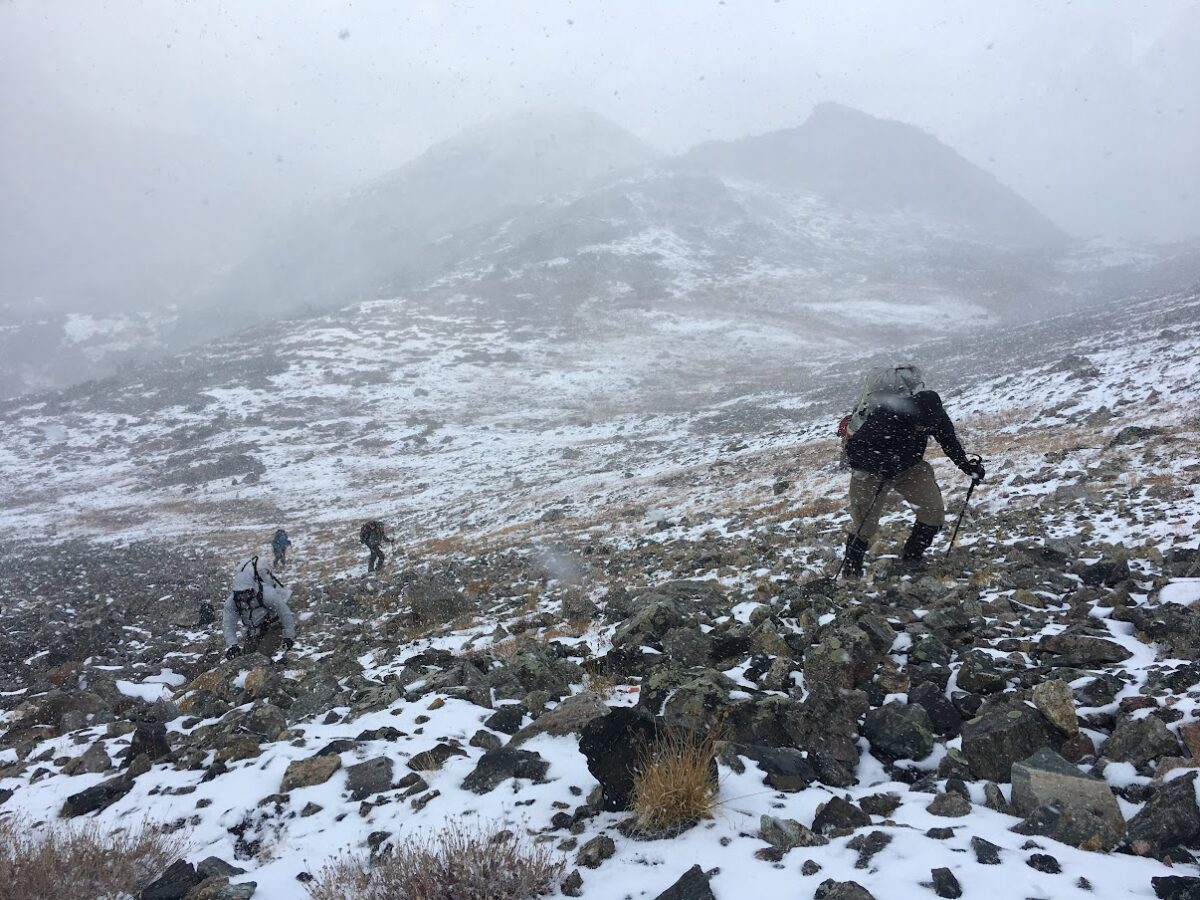


Home › Forums › Walking With Marcus: How Stoic Philosophy Informs My Ultralight Backpacking